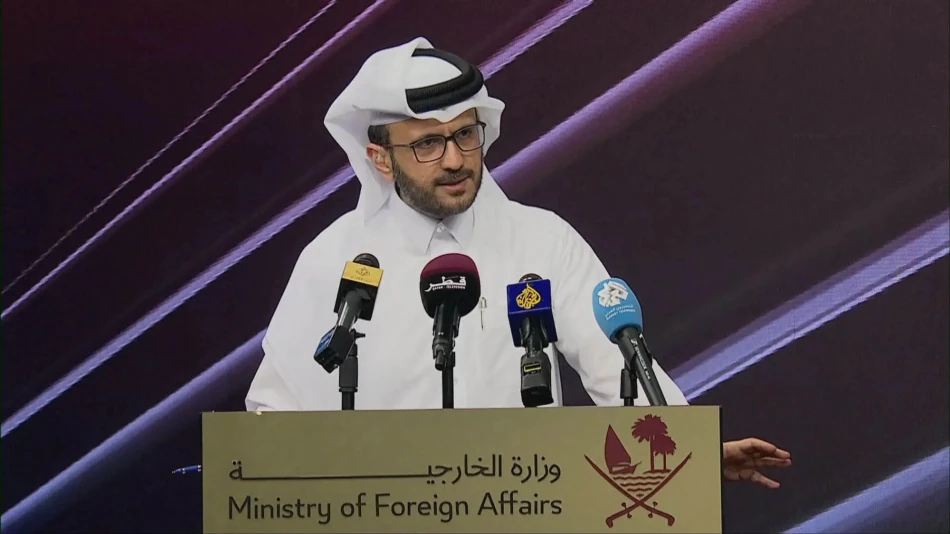
Qatar Receives US Call Amid Explosions in Doha: Navigating the Crisis
Qatar Contradicts White House Claims Over Israeli Strike Notification Timing
Qatar has directly challenged White House assertions about advance warning of Israeli strikes on Doha, revealing a significant diplomatic miscommunication that exposes coordination gaps between key Middle Eastern allies. The Gulf state's foreign ministry spokesman confirmed that US officials contacted Qatar only as explosions were already being heard in the capital, contradicting Washington's earlier claims of prior notification.
Conflicting Accounts Emerge
The diplomatic dispute centers on the timing of US-Qatar communications during Israeli military operations in Doha. Qatar's Foreign Ministry spokesman Majed Al-Ansari took to X (formerly Twitter) to categorically deny White House statements, declaring that "circulating statements about Qatar being informed of the attack in advance are untrue."
According to Al-Ansari, the American contact came "while hearing the sound of explosions resulting from the Israeli attack in Doha," painting a picture of real-time crisis management rather than coordinated advance planning.
White House Version Under Scrutiny
The Biden administration had initially claimed that Trump's envoy provided Qatar with advance notice of the Israeli strikes, and that the US President subsequently spoke with both Israeli Prime Minister and the Emir of Qatar following the operations. This version suggested a more orchestrated diplomatic approach to managing regional tensions.
Regional Implications for Gulf Diplomacy
This contradiction highlights the delicate balance Qatar maintains in Middle Eastern geopolitics. As a nation that hosts both US military assets and maintains diplomatic channels with various regional actors, Qatar's position requires careful navigation of competing interests.
The timing dispute may reflect broader challenges in US coordination with Gulf allies during military operations. Unlike the UAE or Saudi Arabia, Qatar has historically maintained more independent foreign policy positions, particularly regarding regional conflicts.
Trust and Communication Breakdown
The public disagreement between Qatar and the White House over basic facts suggests deeper communication failures in US-Gulf relations. For Qatar, being perceived as complicit in Israeli operations without genuine advance consultation could damage its carefully cultivated role as a regional mediator.
This incident recalls similar coordination challenges during past Middle Eastern operations, where allied nations have found themselves managing the domestic political fallout from military actions they claim not to have been properly briefed on.
Strategic Consequences
Qatar's swift public correction indicates the high stakes involved in how these events are perceived domestically and regionally. The Gulf state's hosting of various diplomatic initiatives and its role in regional mediation efforts could be compromised if it appears too closely aligned with military operations it didn't endorse.
The contradiction also raises questions about information flow within the US administration and its communication protocols with regional partners during sensitive operations.
Most Viewed News

 Sara Khaled
Sara Khaled






